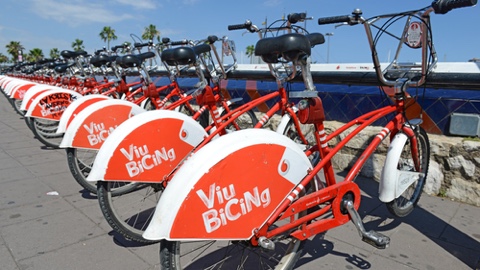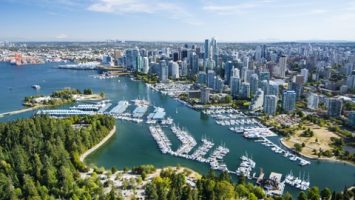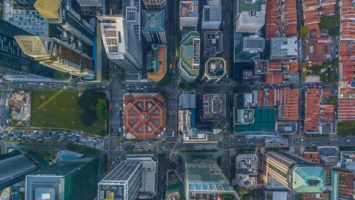
Innovative smart city projects are taking place worldwide. Here are some that have our interest:
The Biogas Boat, Amsterdam
The founders of Café de Ceuvel in Amsterdam have always sought to reduce their impact on the environment. Growing their own vegetables to reduce food transport issues, recovering phosphates from urine, and using up-cycled materials in their restaurant construction are only some of the initiatives that reduce their carbon footprint. The latest project is the world’s first biogas boat, which will convert organic waste from the cafe into fertilizer and biogas. The fertilizer will be used in the restaurant’s own gardens, and the biogas will be used for cooking.
CityTree, Berlin
Green City Solutions has designed a compact, free-standing moss garden that naturally filters CO2, nitrous oxide and dust. Though taking up very little room – essentially, one wall of a bus station in size – the units have the same air purifying capability of 275 trees! IoT is incorporated to monitor maintenance issues.
The GEYSER Project
GEYSER – an acronym for “Green nEtworked data centers as energY proSumers in smaRt city environments” – seeks to reduce data centers’ energy demands. Co-funded by the European Commission with four active test sites in Italy, Germany, and The Netherlands, the project’s goals are to maximize the use of renewable energy while ensuring network stability.
Telensa, Great Chesterford
The UK-based company, Telensa, has designed an on-street parking monitoring system that enables drivers to quickly find a parking space using their mobile devices. The vehicle detection unit uses a magnetic sensor to sense when a car parks over the device. It then transmits the information to a central city hub.
The Fujisawa Sustainable Smart Town, Fujisawa City
The Fujisawa Sustainable Smart Town in Japan is a joint project between the private and public sectors, including Panasonic and the Japanese government. They have created a smart town of 330 homes with the eventual goal of 1,000 households. Overall goals include 70% reduction on CO2, 30% reduction of water consumption, and renewable energy usage of over 30%. They hope to reach these goals using solar panel fields, solar power battery storage in homes, and electric vehicle and bicycle sharing programs.
The Internet of Sewers, Victoria
The water department of the City of Victoria in Australia has begun testing the use of Narrowband-Internet of Things (NB-IoT) technology for real-time monitoring of water and sewage systems with the goal of improving reliability, efficiency and safety. This low-cost technology uses less power than other communications systems and will connect electronics, sensors and software throughout the network.
GrowSmarter, Barcelona
The City of Barcelona is tackling a number of issues as a part of the GrowSmarter project and introducing many new innovative services. These include a new bus system, apps to improve communication, smart traffic lights, electric vehicles, organic waste recycling, bike sharing, and more. Over 25 million Euros are invested in the program.
Cleantech San Diego, San Diego
In San Diego, one of the primary methods for supporting clean technology and sustainability is the promotion of electric vehicles. The city aims to become a truly plug-in ready city by expanding the public electric vehicle (EV) infrastructure. This would ensure safe, reliable, and efficient integration of EV charging loads with the power grid. Currently, the region has 14,000 EV drivers, 727 public charging stations, and 34 DC fast chargers. San Diego is also home of car2go’s fleet of 400 electric vehicles, the only all-electric car sharing program in North America. Learn more about the multitude of active initiatives in San Diego through the nonprofit Cleantech San Diego.
Eden Urban Farms, Detroit
Eden Urban Farms uses a sustainable agriculture model to provide locally grown fresh foods and jobs to urban communities. Growing indoors and maximizing square footage by stacking growing systems yields up to quadruple the harvest output of traditional farms. Locally sourced food means year round produce supplies and lessens the carbon footprint by reducing transportation shipping costs.
IoT and Transportation, Dubai
In Dubai, Cisco is working to increase the use of public transport to reduce traffic congestion and pollution. Using IoT technology allows passengers to use a mobile app to check schedules, and pay for parking and purchase tickets. Cisco reports that the use of public transport systems has doubled from 6% to 12% of the population.


